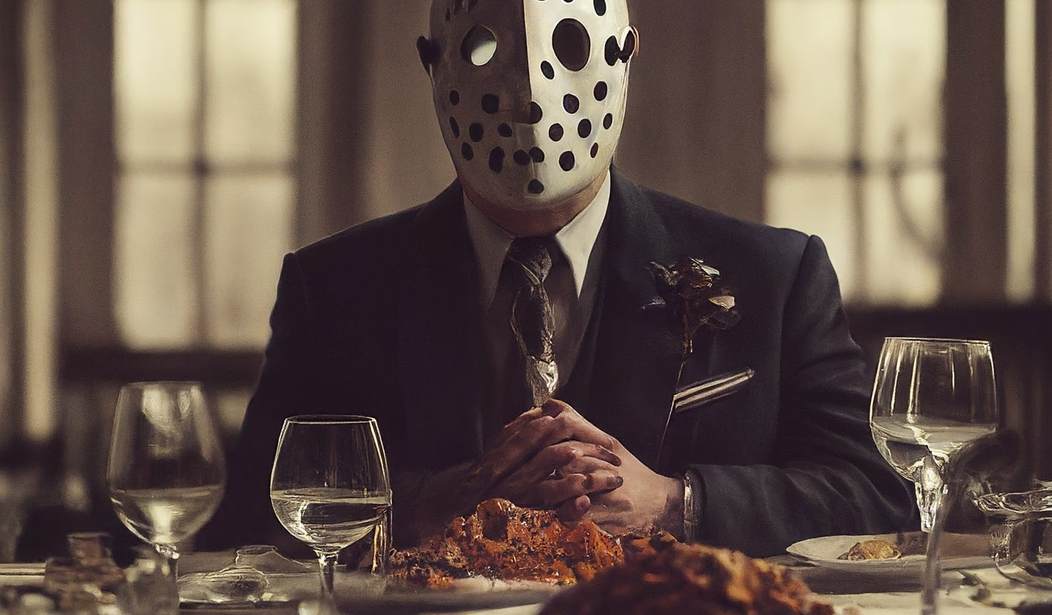It's a tricky decision, whether or not to eat other people, and one that should be considered carefully, even though, "ethically, cannibalism poses fewer issues than you might imagine," according to an unsigned, subscriber-only piece in New Scientist.
Nobody wanted to put their name on that or leave it outside the paywall?
Never fear, I provided New Scientist with my credit card number — and, to my mild distress, with my home address — so I could read the excuse for cannibalism so powerful that its author must remain a mystery.
"If a body can be bequeathed with consent to medical science, why can’t it be left to feed the hungry?" asks an ostensibly serious piece in a serious magazine with all the faux-depth of a pot-fueled bull session. Maybe because stringy old carcasses are terrible?
Perhaps it is down to the fact that, in Western religious traditions, bodies are seen as the seat of the soul and have a whiff of the sacred. Or maybe it is culturally ingrained, with roots in early modern colonialism, when racist stereotypes of the cannibal were concocted to justify subjugation. These came to represent the “other” to Western societies – and revulsion towards cannibalism became a tenet of their moral conscience.
You just knew that racism was going to come into the argument sooner or later.
The author never endorses cannibalism but does argue that "understanding its deep roots might shift our perspective on the few cultures that still practise cannibalism today."
Yeah, no.
There are two reasons we don't eat people, one serious and one serious but darkly funny.
The funny(ish) reason is that once you open up the door to people eating people who are OK with being eaten, then rich weirdos are going to want to eat babies. Think I'm kidding? Think again. Is it such a stretch to go from trafficking children's bodies to satisfy one desire that much different from using them to satisfy another desire?
Next thing you know, rich weirdos will be raising babies like the pampered Japanese Black cattle that produce Wagyu beef. They'll boast about the elegant marbling of the high fat content on the loin from this fine specimen just nine months old. Now I am kidding, but ask me again in 2025 and the dark joke might be on me.
"Like it or not, then, cannibalism is an important part of our story," New Scientist said. But there's a reason we left it in the past, the more serious reason. In Robert Heinlein's "Stranger In a Strange Land," our hero, Michael Valentine Smith, was raised on Mars completely by Martians. The Martians practice cannibalism as part of their funeral rites to become one ("grok") with the deceased.
The novel's elder statesman, Jubal Harshaw, explained that cannibalism works for the Martians because they're more civilized than we are, not less. "If we didn't have a tribal taboo about the matter so strong that you honestly believed it was an instinct," he explained to a friend revulsed by Martian practice, "I can think of a long list of people I wouldn't trust with my back turned, not with the price of beef what it is today."
Our three strongest cultural taboos admonish us against cannibalism, incest, and child abuse — taboos rooted in the deep and ancient experience that the outcomes are horrific and, even if it's only for a few people, the temptations are too great. As any scientist should know, and not try to excuse.
"Follow the science," they spent 2020 telling us. Down the path to cannibalism? No thank you — I've lost my appetite.
Recommended: Guess Who's Closing Stores in Chicago Now










Join the conversation as a VIP Member